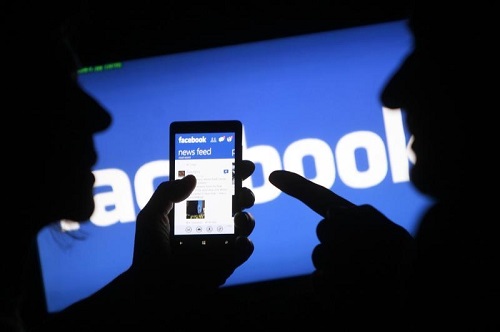Reuters photo
By
Tom Arms
Facebook’s stated mission is “to give people the power to build community and bring the world closer together.”
It also has an unstated mission: To make a shedload of money.
It is incredibly successful at both.
There are 2.2 billion active Facebook users. Mark Zuckerberg is worth $67.7 billion.
But the rest of society is discovering that there is a price to be paid in invasion of privacy and erosion of political liberties.
The problem is that the posted holiday snaps, political opinions and declarations of love don’t belong to you. They belong to Facebook who run the data through clever algorithms to work out just what you are likely to want to buy. They sell that analysis to advertisers who use the information to micro-target consumers on Facebook.
No longer do advertisers have to spend tens of thousands of dollars for a page in a glossy magazine to reach 200,000 users of which possibly only two percent will be interested in their product. They now pay a fraction of the old price to reach 200,000 Facebook users whose information that they entered on their Facebook page reveals them as a prime target.
What is wrong with that? Advertisers reach a highly targeted international market which opens the possibility of global trade while consumers are offered the opportunity to buy the sort of goods and services they want at the best possible price.
That must be a good thing. Yes it is. Unfortunately it does not stop there.
Enter Cambridge academic Professor Aleksandr Kogan and Cambridge-based digital analytical firm Cambridge Analytica. Dr Kogan, a psychology professor who invented an app which extracted information on 250,000 Facebook users AND all of their connections—a total of 50,000,000 Facebook users. He said he wanted the information to produce psychological profiles.
It is unclear if Dr Kogan approached Cambridge Analytica or vice versa. But somehow they came together and Dr Kogan was paid to allow Cambridge Analytica to use his app to “mine” profile data on Facebook users. This data was then used for political purposes to plant fake news, misinformation, disinformation and false information through the Facebook network which was in turn picked up by other social media sites such as twitter and instagram and finally the mainstream news.
Cambridge Analytica’s activities are alleged to have had a major impact on the US presidential election, successive Kenyan presidential elections and the Brexit vote.
Mark Turnbull, managing director of the company’s political arm, boasted that as far as Kenya was concerned, his company “staged the whole thing.” Taped by a hidden television news camera, he said: “We have rebranded the entire party twice, written the manifesto, done research and analysis messaging. I think we wrote all the speeches and we staged the whole thing.”
As for Brexit, it depends on whom you spoke to and when. Before the latest furore erupted, both the Leave EU campaign and Cambridge Analytica were eager to give full credit to the Cambridge company. Arron Banks praised the company in his book on the Brexit campaign. But lately both sides have denied that any work was done and that any money changed hands. The issue is being investigated by parliament.
There is no doubt about the impact of Cambridge Analytica on the 2016 US presidential elections. CEO Alexander Nix made it clear to the same hidden camera that his company takes full credit for winning three key marginal states for Donald Trump. The president is not saying much at the moment but former White House chief strategist Steve Bannon made no secret of the contribution of Cambridge Analytica.
Facebook’s Zuckerberg claims that he was unaware of the activities of Cambridge Analytica. The company say this is rubbish. The result is that Zuckerberg is being called to give an account of himself and his company to Congress, the British House of Commons and the European Parliament.
The fact is that Facebook is being used increasingly to pursue political aims, and that because of its wide ranging all-inclusive nature it has become a platform not only for mainstream political debate but also for messages of hate and division.
Facebook says it wants to “build community and bring the world closer together.” It is in danger of doing the opposite.
Tom Arms
I am a journalist, entrepreneur and historian with extensive experience in print, web and broadcast journalism. I started as a diplomatic correspondent, wrote several books (The Falklands Crisis, World Elections On File and the Encyclopedia of the Cold War), and then in 1987 started my own business (Future Events News Service, www.fensinformation.com) which over 25 years established itself as the world and UK media’s diary. Our strapline was: “We set the world’s news agenda.” I sold FENS in December 2012 but retained the exclusive broadcast rights to all of FENS data. To exploit these rights I set up LookAhead TV which produces unique programmes which “Broadcasts Tomorrow Today” so that viewers can “Plan to Participate.” LookAhead has appeared regularly on Vox Africa, Radio Tatras International, The Conversation and Voice of Africa Radio.
In addition to being a syndicated broadcaster and columnist on global affairs, Tom is also available for speaking engagements and can be contacted on Twitter, Linkedin and email: [email protected].



No Comments Yet!
You can be first to comment this post!